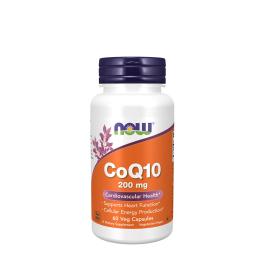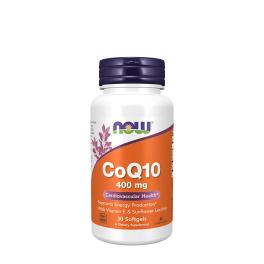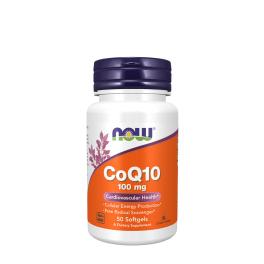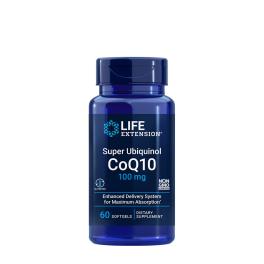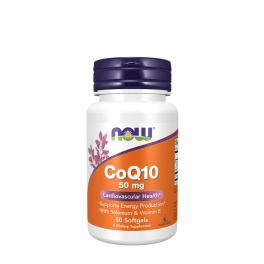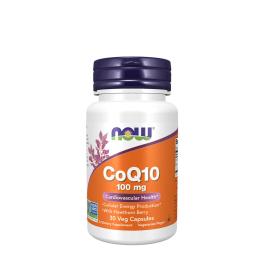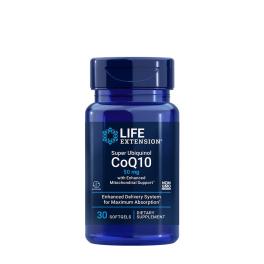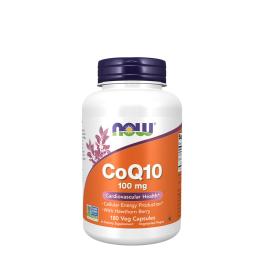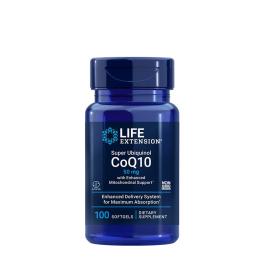Coenzyme Q10 is an essential compound. About 95% of our energy is due to the way it does its work in our cells. The body normally produces enough to sustain itself until the age of 25-30, but like collagen, for example, our bodies produce less and less of this compound as we age. A balanced diet can do a lot to maintain the necessary levels, but we still can't replace the amount we need for healthy functioning, so it's worth taking supplements. The Vitamin360 range offers a wide variety of products to help you stay fit and healthy.
What is Q10-coenzyme?
Coenzyme Q10 is a compound that is prominent in energy production processes. Its key role is due to the fact that it obtains energy in the mitochondria: when oxygen and certain nutrients enter the blood, it starts to break them down. When proteins, carbohydrates and fats are processed, adenosine triphosphate is produced, which provides the body with direct energy. As long as this cycle is going on - almost constantly - it is coenzyme Q10 that helps the electrons that are travelling through the process. If it is needed, it adds electrons to the process, and if there are too many, it takes away the excess. These processes occur during physical and mental tasks, and even during sleep and breathing. This is why it is essential to have adequate levels of Q10 coenzyme in the body.
What is the natural form of coenzyme Q10?
In the absence of the compound, the efficiency of basic biochemical functions is altered or reduced. We may feel more tired, more enervated and, even if we rest, the situation remains the same. This is when we should suspect that we have a Q10 coenzyme deficiency. There are two ways to remedy this: eat foods rich in coenzyme Q10 and take Q10 capsules regularly from a young age. This compound is found in meat, some marine fish, seeds, most dairy products and eggs. Some vegetables and fruits also contain significant amounts of Q10: cauliflower, broccoli, some pulses, oranges and strawberries.
What are the benefits of taking Q10-coenzyme capsules?
There are many areas where Q10 has been shown to be beneficial. Q10-coenzyme provides protection against oxidative stress (free radicals that damage cells) due to its powerful antioxidant effect. The process of oxidative stress is the cause of ageing and a number of serious diseases, which are very common. Free radicals deprive the molecules that make up cells of electrons, so that the cell cannot do its job: for example, it starts to divide irregularly. Some research has linked a lack of Q10 coenzyme to high blood pressure, diabetes, all heart diseases and deteriorating mental and muscular health.
Coenzyme Q10 has been used in Japan as a medicine to treat heart disease since the 1960s, but it also has a markedly positive effect on respiratory health. It has even been suggested to play a role in weight loss.
If taken regularly, it can help you to fight these diseases effectively, improve your general well-being, increase your work capacity and even help you to exercise more effectively.
When and in what dosage should I take Q10-coenzyme capsules?
Q10 is a vitamin-like substance that should not be supplemented under the age of 18. At this age, the body can normally produce enough of it, so extra intake outside the diet is unnecessary. It is recommended to start taking it only after consulting your GP until the age of 25, but after this age, extra intake is needed even if you feel otherwise in good health.
If you have never taken Q10-coenzyme as a dietary supplement before, start with 100-200 mg per day and continue for 60 days. After a two-month cycle, 30 mg per day may be sufficient.
Coenzyme Q10 may be particularly needed by people living with heart disease or heart failure. Clinical trials have shown that people with heart problems not only improved their general well-being, but also their physical and mental performance. Higher doses may be needed in consultation with a doctor, but the dosage should not exceed 1200 mg per day. Research has also shown that it is almost impossible to overdose on vitamin Q10: no significant side effects have been observed in patients taking more than 3600 mg per day.
Coenzyme Q10 is a fat-soluble compound. Try to take Q10 capsules at a similar time each day, preferably after a meal that contains a sufficient amount of 'good' fat. Scrambled eggs with a little olive oil in the morning, for example, are an excellent way to ensure that the compound is properly absorbed by the body throughout the day.
In which packaging can I get Q10 coenzyme from Vitamin360's webshop?
There are almost 60 different Q10 coenzyme products in the Vitamin360 webshop. These include natural oils, tablets and sprays, and can be purchased in dosages of 30-50-60 mg, as well as supplements in dosages of 100-200-400-600 mg for extra supplementation. Products formulated to supplement coenzyme Q10 are available in one-month and multi-month packs, in high quality and at very affordable prices. Take your doctor's advice: focus on prevention rather than on cure!

